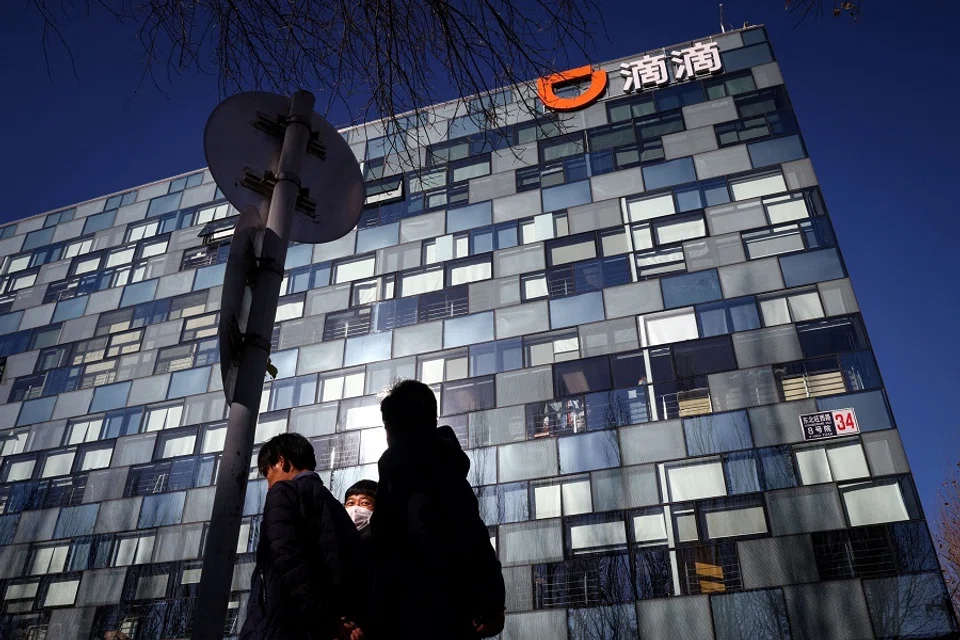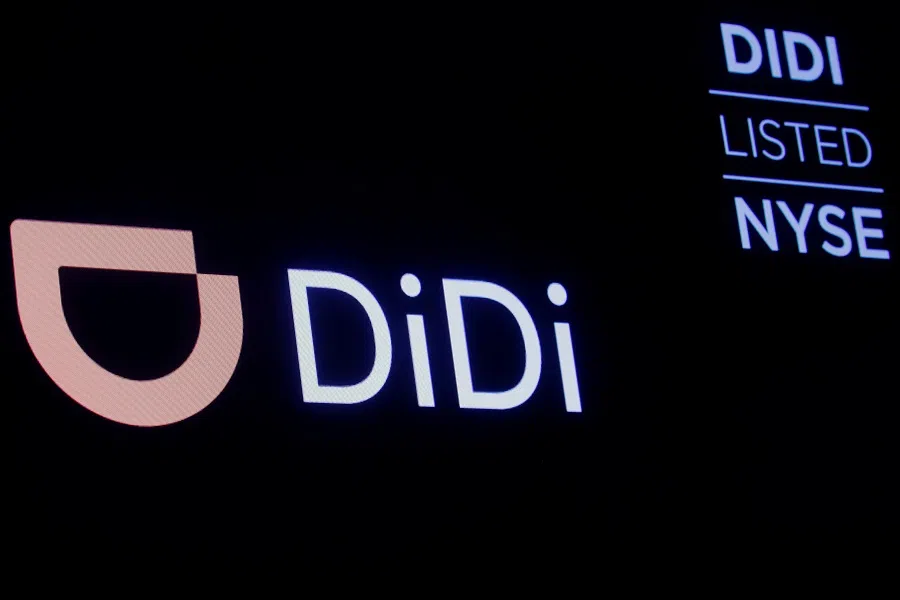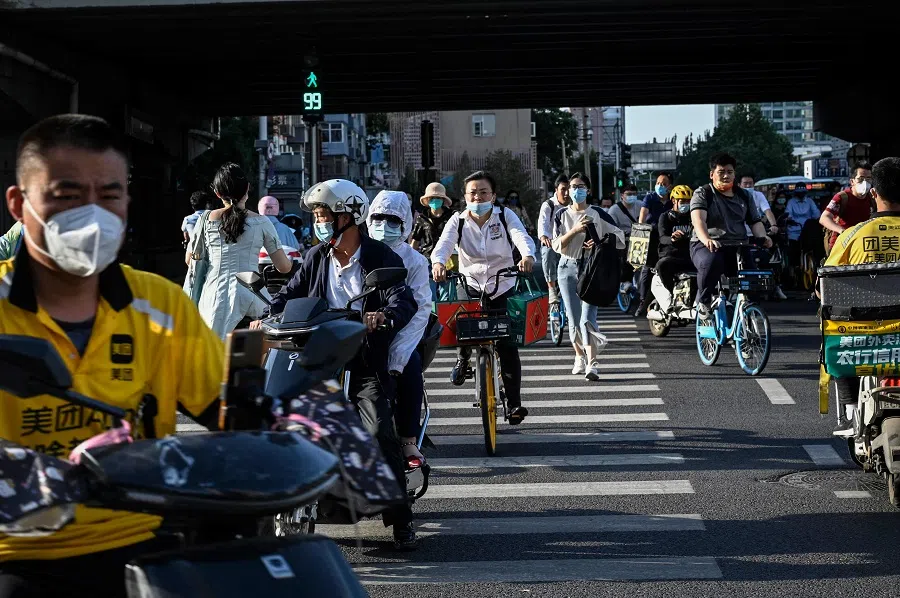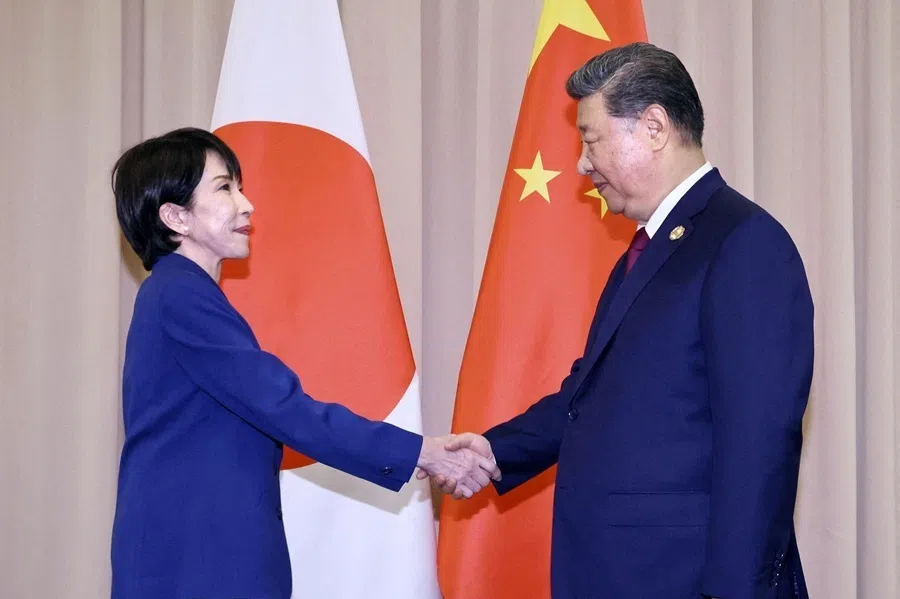Does end of Didi probe signal new beginnings for China's internet economy?
With the economic and political blowback from its regulatory crackdowns in the past two years, coupled with economic pressures from the pandemic, the Chinese authorities may be ready to ease up on high-pressure regulations of the internet sector.

Chinese ride-hailing giant Didi Chuxing seems to be coming out of its regulatory maelstrom.
The Wall Street Journal (WSJ) on 6 June quoted people familiar with the matter as saying that Chinese regulators are concluding a year-long cybersecurity probe into Didi and preparing to lift the ban on new user registrations.
This means that the app could be back on domestic app stores as early as this week. Ditto for the apps of two other companies subjected to probes after Didi - logistics platform Full Truck Alliance Co and online recruitment services company Kanzhun Ltd.
Last July, just two days after its low-key listing on the New York Stock Exchange (NYSE), Beijing-based Didi was suddenly dealt a heavy blow by Chinese regulatory departments.
Story of a storm
The Didi app was pulled from app stores in China, while Chinese regulators launched an investigation into Didi on the grounds that it would mitigate national data security risks and ensure national security. The Ministry of Public Security, the Cyberspace Administration of China and other regulatory departments also conducted on-site inspections at Didi's offices.

The string of regulatory actions caught Didi off guard and spooked investors. Didi's share price plummeted from the initial public offering price of US$14 per share to just a few dollars. By the end of May 2022, Didi's share price was less than US$2 apiece.
Nearly 90% of Didi's market value has evaporated and its business in China has deteriorated sharply. Meanwhile, Didi's competitors such as Meituan, T3 and Cao Cao Mobility took the chance to expand and encroach on the market share Didi had secured in the last battle of the ride-hailing enterprises.
Since the start of the year, rumours of massive layoffs have been rife. The media reported that in February, the company decided to lay off 20% of its overall workforce, and announced its retrenchment targets for various departments and business lines.
... cybersecurity personnel did not find significant problems with the company after months of on-site investigations.

Less than a year after its US listing, Didi officially filed the required paperwork with the US Securities and Exchange Commission on 2 June to delist from the NYSE, confirming its long-rumoured plans to delist. Now with the news that the cybersecurity probe may be over, if the Didi app really returns to app stores soon, Didi would have finally turned a page on the matter.
Unanswered questions
But there is no information about the outcome of the probe on Didi, or the sort of rectifications that will be required of the company which has been accused of posing a risk to national data security.
People familiar with the matter told WSJ that Didi is expected to face financial penalties and will have to offer 1% equity stakes to the state, thereby giving the government a direct role in corporate decisions. However, cybersecurity personnel did not find significant problems with the company after months of on-site investigations.
If this is true, it indirectly proves theories made by the outside world since the probe that the political stakes outweigh the security concerns.
When the investigation was first launched, many views surfaced as to the cause. Some guessed that it was because Didi got listed in the US amid the escalating China-US tussle - Beijing was trying to get tech companies to return to mainland China or Hong Kong, but Didi chose to get listed in the US on 30 June, the day before the 100th anniversary of the CCP, and its "act first, talk later" approach touched a political red line.
In China, where politics is above all, Didi's actions were going up against the will of the country and the government, provoking the authorities into taking harsh action.

There was also news that before Didi's listing, the regulatory authorities wanted it to delay its listing and conduct a thorough self-inspection of network security, but Didi went ahead anyway. In China, where politics is above all, Didi's actions were going up against the will of the country and the government, provoking the authorities into taking harsh action.
Chinese internet sector's chill of winter
Now, the Chinese regulatory authorities have "approved" Didi. Aside from the fact that the company has formally applied to be delisted in the US, the larger reason is that the situation has changed.
In late 2020, the Chinese authorities started cleaning up the internet sector. Amid moves against monopoly and clamping down on the "disorderly expansion of capital", previously high-profile internet bosses started to have their tails between their legs, while the once-thriving internet sector became jumpy and apprehensive. This is also the context of the investigation into Didi.
After over a year of high-pressure regulation, China's internet sector is experiencing the chill of winter, not seen for many years. This sector used to hire many university graduates, but from late last year, there has been frequent news of retrenchments, and people are concerned that the heavy regulatory measures by the authorities have seriously hurt the internet sector.
Amid a severe slowdown in the growth of China's economy, not only is the sector incapable of stabilising the employment situation, but it is starting to add to rising unemployment.
Under various economic pressures, recently the Chinese authorities have emphasised support for the standardised and healthy development of the platform economy, and also support for companies in the digital economy getting listed and financed in both domestic and overseas markets so long as they follow the rules and regulations.
Ending the investigation into Didi shows that the authorities no longer want to "restrain" already-struggling internet companies.

The authorities have also said it wants to properly handle the relationship between the government and the market. All this signals preparations to ease up on high-pressure regulations of the internet sector.
At a press conference on 6 June, Minister of Science and Technology Wang Zhigang said regulation of tech companies should "incentivise" and "restrain" as appropriate. Ending the investigation into Didi shows that the authorities no longer want to "restrain" already-struggling internet companies.
It is necessary for the authorities to clamp down on the disorderly expansion of capital, regulate new sectors, and make industries more sustainable, in order to serve the interests of the country and society rather than a minority. This is why some describe Didi's delisting in the US and dropping its capital- and volume-led growth model as a "timely awakening".
However, the strong regulations have seriously impacted market confidence. Coupled with the economic impact of its pandemic efforts, China's economic vitality has taken a hard hit. Hopefully, it is not too late to quickly transition from "restraining" to "incentivising".
Related: Ride-hailing giant Didi slapped with Chinese cybersecurity review days after IPO | Why is Beijing punishing Didi? | Didi COO and family called 'traitors': Chinese tech entrepreneurs now public enemies on social media? | Why China is cracking down on big capital | Why platform companies seek monopoly and what happens when governments rein them in





